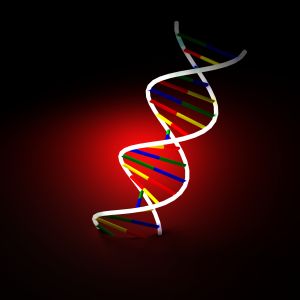 A recent Maryland Court of Appeals decision has declared that it is an unconstitutional invasion of privacy for police officers to obtain DNA samples from arrested individuals absent a criminal conviction. It has previously been the standard practice of the Maryland State Police and other police departments around the state to obtain DNA samples from any suspect charged with burglary, and certain violent crimes such as assault, rape, homicide, and aggravated assault. Under the recent ruling, Maryland police departments must now wait until prosecuting lawyers secure a criminal conviction before they can legally obtain DNA samples from a defendant. The ruling by the Maryland Court of Appeals overturned the 2009 rape conviction of Alonzo Jay King Jr. when the court concluded that DNA samples that led to King’s rape conviction were the fruits of an illegal seizure pursuant to the Fourth Amendment of the U.S. Constitution. King’s DNA sample was obtained after he was arrested for an unrelated assault case. The high court ruling has had an immediate impact upon law enforcement, as the Maryland state police department, headquartered in Pikesville, Maryland, has already instructed its employees to suspend DNA sampling of arrested suspects.
A recent Maryland Court of Appeals decision has declared that it is an unconstitutional invasion of privacy for police officers to obtain DNA samples from arrested individuals absent a criminal conviction. It has previously been the standard practice of the Maryland State Police and other police departments around the state to obtain DNA samples from any suspect charged with burglary, and certain violent crimes such as assault, rape, homicide, and aggravated assault. Under the recent ruling, Maryland police departments must now wait until prosecuting lawyers secure a criminal conviction before they can legally obtain DNA samples from a defendant. The ruling by the Maryland Court of Appeals overturned the 2009 rape conviction of Alonzo Jay King Jr. when the court concluded that DNA samples that led to King’s rape conviction were the fruits of an illegal seizure pursuant to the Fourth Amendment of the U.S. Constitution. King’s DNA sample was obtained after he was arrested for an unrelated assault case. The high court ruling has had an immediate impact upon law enforcement, as the Maryland state police department, headquartered in Pikesville, Maryland, has already instructed its employees to suspend DNA sampling of arrested suspects.
Despite the recent high court decision, some Maryland police departments originally went on record saying that they would continue their policies of sampling certain criminal suspects upon arrest. The Baltimore County police department and the Ann Arundel County police department had planned to wait on a decision as to whether the ruling would be appealed before halting their DNA sampling policies. In addition, the Baltimore City police department and the Howard County police department did not immediately suspend their DNA sampling policies, but rather were waiting specific instructions from the Maryland state public safety department, who is responsible for the sampling in those jurisdictions. These police departments did back down from their initial reluctance to follow the Maryland Court of Appeals ruling, and have now joined the state police in directing employees to suspend DNA sampling upon arrest.
The ruling by the Maryland high court has been met with a great deal of opposition, especially from the office of governor O’Malley. The governor has publicly urged the Maryland Attorney General, Douglas Gansler, to appeal the decision to the United States Supreme Court via a writ of certiorari. The governor is joined by the Baltimore City police commissioner in opposing the ruling, as both have argued that the appeals court’s decision eliminates a key tool for law enforcement to solve cold cases and arrest violent criminals that would otherwise remain on the street. Those in support of the ruling may argue that law enforcement still has the ability to build a large DNA database, as the ruling does not affect the ability of law enforcement to take DNA sampling with a warrant, nor does it place limitations on DNA sampling post conviction.
If the Maryland Attorney General decides to appeal the ruling, the United States Supreme Court will most likely affirm the decision. While law enforcement does have a legitimate interest in building a DNA database to solve crime, it is clearly an invasion of privacy for the government to sample and store DNA of all persons subject to arrest. It is a fundamental principal in this country that all persons arrested for any crime are presumed innocent, and absent a warrant or court order signed by a judge, must not be subject to a privacy invasion such as DNA testing. The Supreme Court would most likely have to first conclude that citizens do not have a reasonable expectation of privacy of their DNA, similar to the court’s treatment of fingerprints, in order to overturn the Maryland Court of Appeals decision. While not out of the question, this is unlikely to happen, and Maryland police departments appear to have lost an intrusive yet affective crime solving tool.
Benjamin Herbst is a Maryland criminal lawyer, specializing in defending clients charged with assault, rape, and burglary throughout Maryland. Contact The Herbst Firm at 410-207-2598 for a free consultation.
References
Md. high court bans DNA swabs of charged suspects; police, prosecutors seek appeal, washingtonpost.com, April 29 2012.
 Criminal Defense Lawyer Blog
Criminal Defense Lawyer Blog

